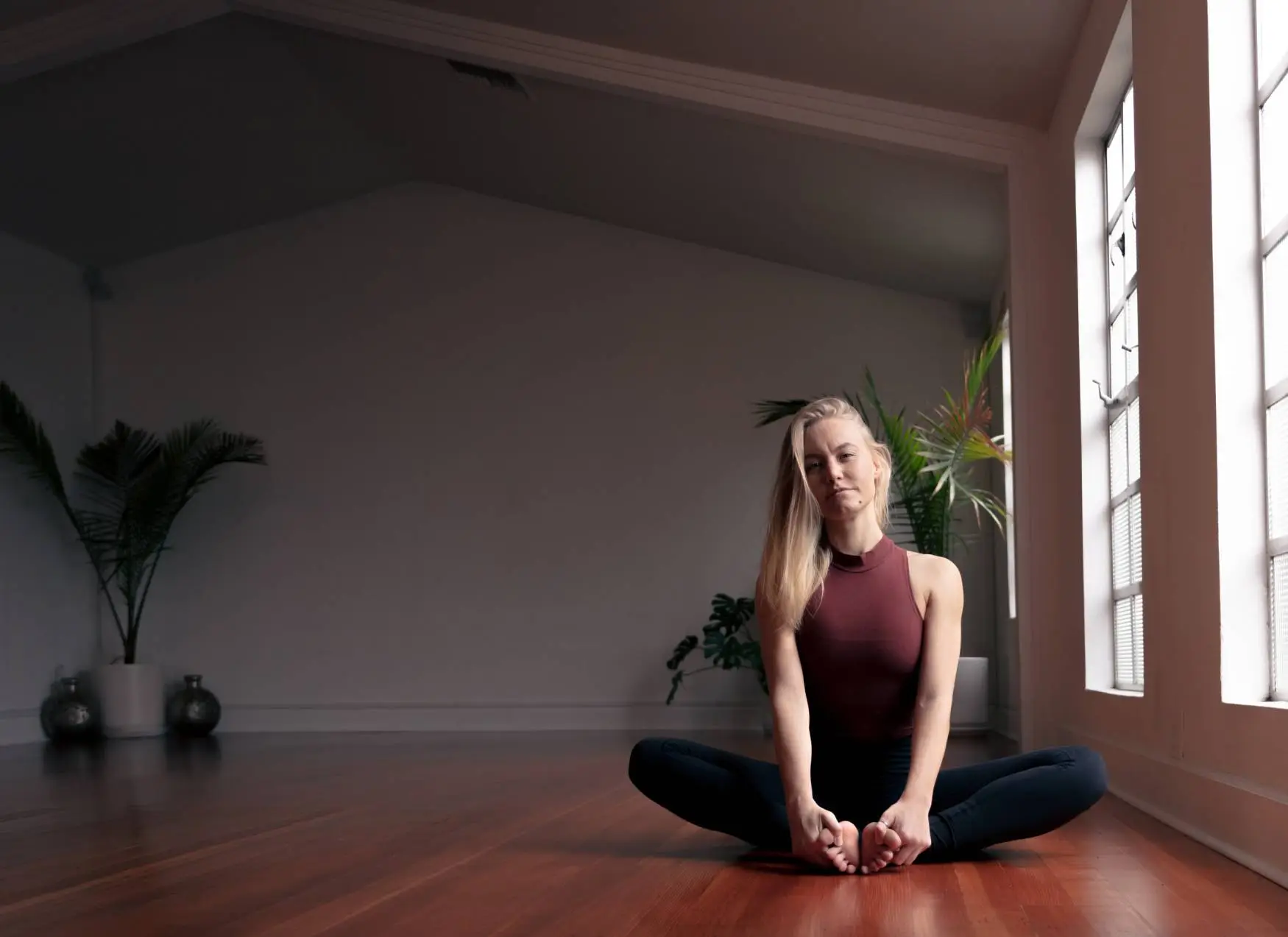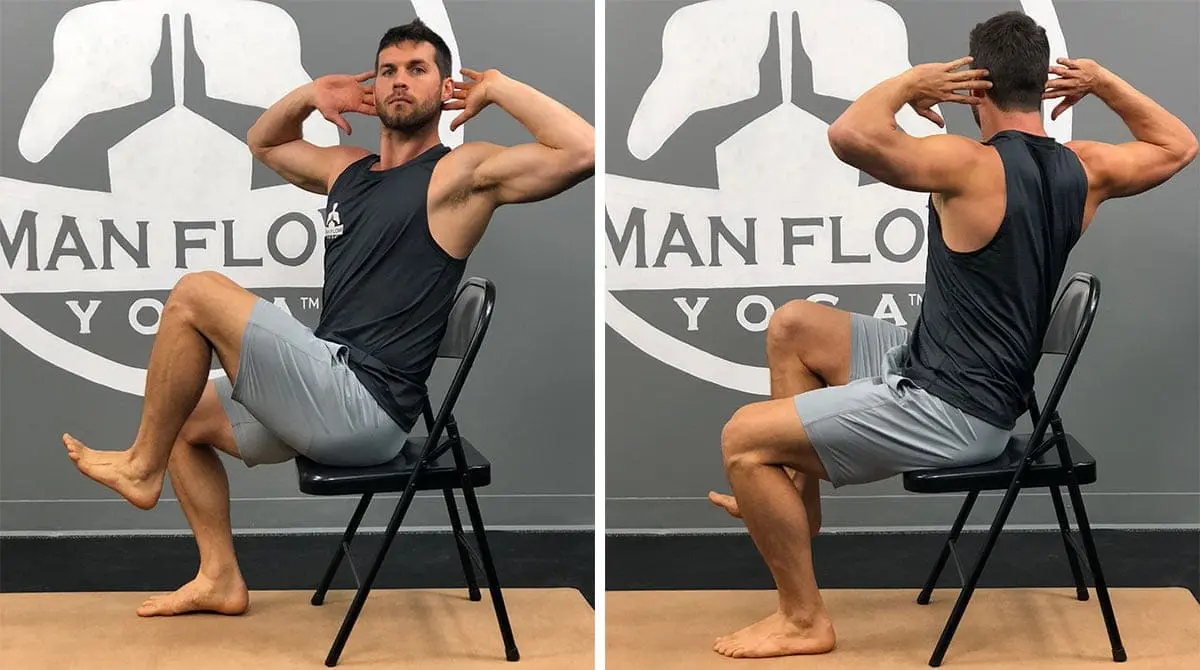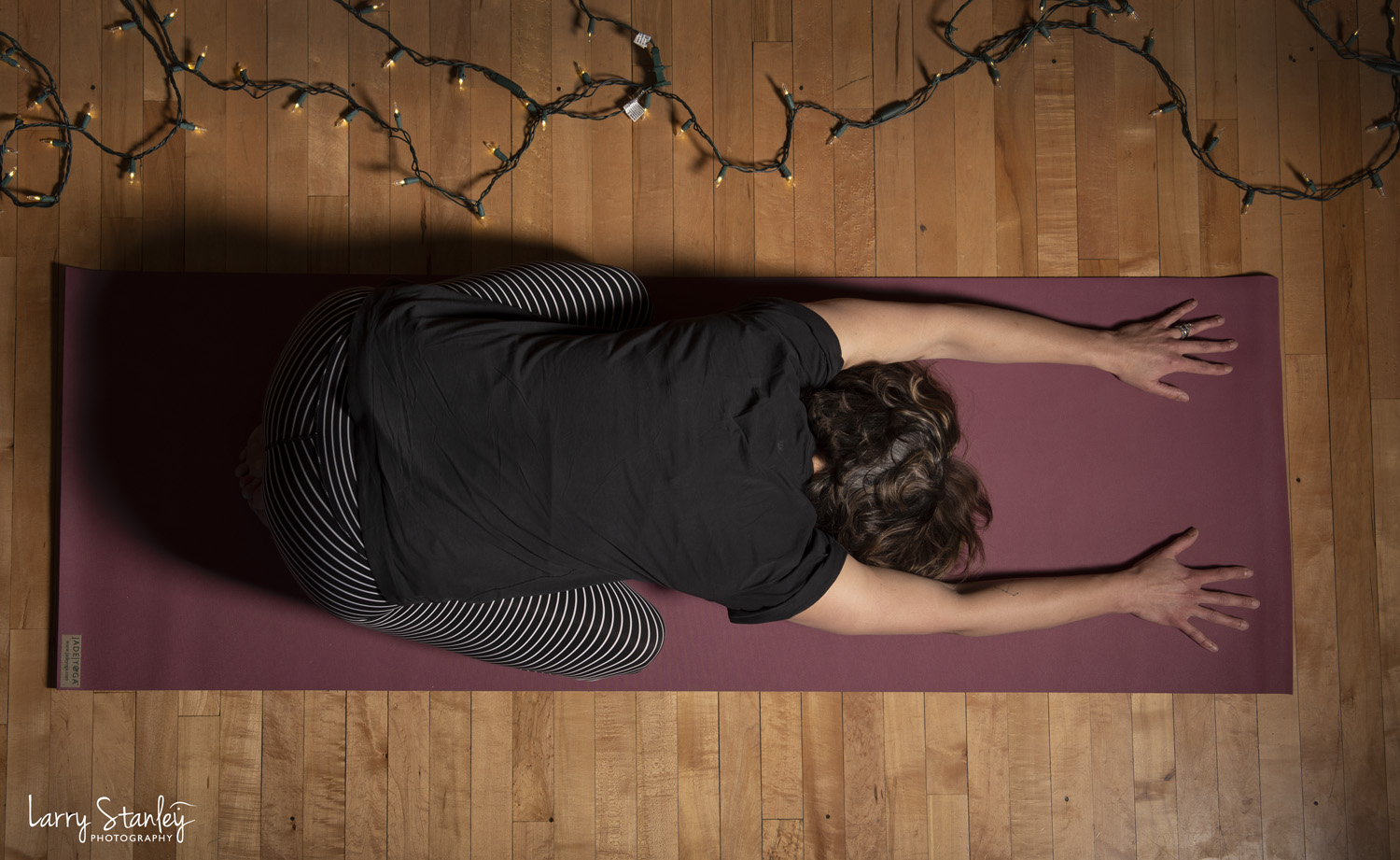How to Get Out of Your Head and Show Up for Your Life
“If you think there’s something missing from your life, it’s probably you.” ~Robert Holden
Most people would agree that thinking too much can cost you your peace, your happiness perhaps—but your life? Surely that’s a bit of an exaggeration.
I’ll explain with a story.
I remember taking my daughter to the park one day when she was around three years old. Like all kids of that age, she was thrilled and mesmerised by her surroundings—the insect crawling up the blade of grass, the ducks squawking in the pond, the dog chasing the frisbee nearby.
She was fully engaged with the life around her—fully present in the moment.
All of a sudden, she pointed up to the sky and shrieked, “Airplane!”
Her shrill voice snapped me out of my reverie and, looking up at the plane high above us, I became aware of my surroundings for the first time.
I noticed that we’d actually arrived in the park. Although my body had been there for several minutes, I had just arrived.
Prior to that, I was a million miles away, deep in thought about something or other, totally oblivious to my surroundings.
Life is always happening now, but, distracted by our thinking minds, we fail to notice.
Your Body Is Here—Where Are You?
As soon as we wake up each morning, the mind TV automatically switches on and starts broadcasting our familiar programs.
And through habit, we give it our full attention. We find the mind’s content way more compelling than the life around us.
My days used to go something like this. Maybe you can relate?
I’d be gulping down breakfast and thinking about my to-do list for the day or how the traffic was going to be on the way to work. The next thing I knew, I’d be staring down at the empty cornflakes bowl in front of me, with no recollection of having eaten it.
I’d totally missed out on the wonderful taste and texture of the food in my mouth, not to mention the warm sun streaming in through the window and the beautiful song of the skylark outside.
The body would then be driving the car to work while I was busy replaying the conversation I’d had with my sister the night before, missing the clouds, the trees, and the beautiful sky along the route.
Next thing I knew, I’d be pulling into the car park at work, with no recollection of having driven there.
The body would then be sitting at its desk, but again, I was somewhere else—counting the days until the weekend or making plans for our next holiday.
Robert Holden, director of The Happiness Project, sums it up beautifully with these words:
“If you think there’s something missing from your life, it’s probably you.”
The Past and Future Have No Life of Their Own
Being lost in past and future mind-movies pulls our attention away from the present moment, away from life, away from reality.
The past and future have no reality of their own. What happened yesterday or what may happen tomorrow exist only as ideas in your head.
The moment is always fresh and alive. The movies that play in our heads are old and stale. They are devoid of life.
Thinking too much costs you your life.
When we spend too much time lost in our thinking minds—rushing from one appointment to the next—life, which is always happening now, flashes by unnoticed.
The days, the weeks, the months, the years all blur into one, as the preciousness of each living moment is lost to a lack of presence.
We’re left wondering where all the time has gone and why we feel so dissatisfied, unfulfilled, and disconnected.
Taking time to be more attentive to each new moment as it arises is the key to experiencing more peace, connection, and aliveness, regardless of what is going on in your life or what you believe it should look like.
When we are absorbed in the present moment, contentment happens by itself. We need not look for it. It is a by-product of being present.
Out of Your Head and Into Your Life
So how do you get out of your head and back into your life?
Present moment awareness is key. This is where life hangs out!
And the good news is that, because the mind can only be in one place at a time, you don’t have to actively try to stop thinking. Bring your attention to the present moment and thinking will stop automatically.
To my mind, mindfulness practice is the simplest and most effective way to achieve this.
Although I had been practicing and teaching other forms of meditation for many years, I became curious to learn more about the mindfulness approach and signed up for an eight-week course.
During the course, there was one particular exercise, “walking meditation,” that had a lasting impression on me.
As we walked slowly and silently through the lush gardens of the retreat center, we were invited to be attentive to the present moment—to feel the ground beneath our feet and pay close attention to every little movement and sensation in the body, as we mindfully placed one foot after the other.
We were instructed to give our full attention to each of the senses, one by one.
This what I wrote in my journal afterward:
“Being attentive to the intricate patterns and colors of the leaves, the spider busy at work on its web, feeling the texture of the grass under the soles of the feet and the gentle breeze on the skin, smelling the soil, the herbs, the fragrant moss, listening to the gentle crackle of twigs underfoot and the rustle of the wind in the trees—transformed what, at first sight, appeared to be a lovely garden, into Narnia, the magical kingdom!”
It is both astonishing and humbling to really notice the enormity of what is going on around us and within us in every moment—when you pay attention.
The wondrous transformation of the garden happened through a shift in attention alone. Nothing new or different appeared on the outside. Everything was exactly as before.
And we can bring this quality into every aspect of our lives.
We are normally so distracted by the thinking mind that we fail to notice the immense richness that is present all around. Being attentive to the fullness of what each moment contains, as children are, naturally instils a sense of wonder and joy within.
Our True Home Is the Present Moment
I’ll finish with these beautiful words about walking meditation from Buddhist mindfulness teacher, Thich Nhat Hahn:
“Walking in mindfulness brings us peace and joy and makes our life real, enjoying peace in each moment with every step. No need to struggle. Enjoy each step.
When we practice walking meditation, we arrive in each moment.
Our true home is in the present moment. When we enter the present moment deeply, our regrets and sorrows disappear, and we discover life with all its wonders.
Breathing in, we say to ourselves, ‘I have arrived.’ Breathing out, we say ‘I am home.’ When we do this, we overcome dispersion and dwell peacefully in the present moment, which is the only moment for us to be alive.”
When the mind is quiet, we are able to engage directly with life, as children do. When we really pay attention to the richness of the present moment, we become enthralled with life, as children are.
Too much thinking will cost you your life.






